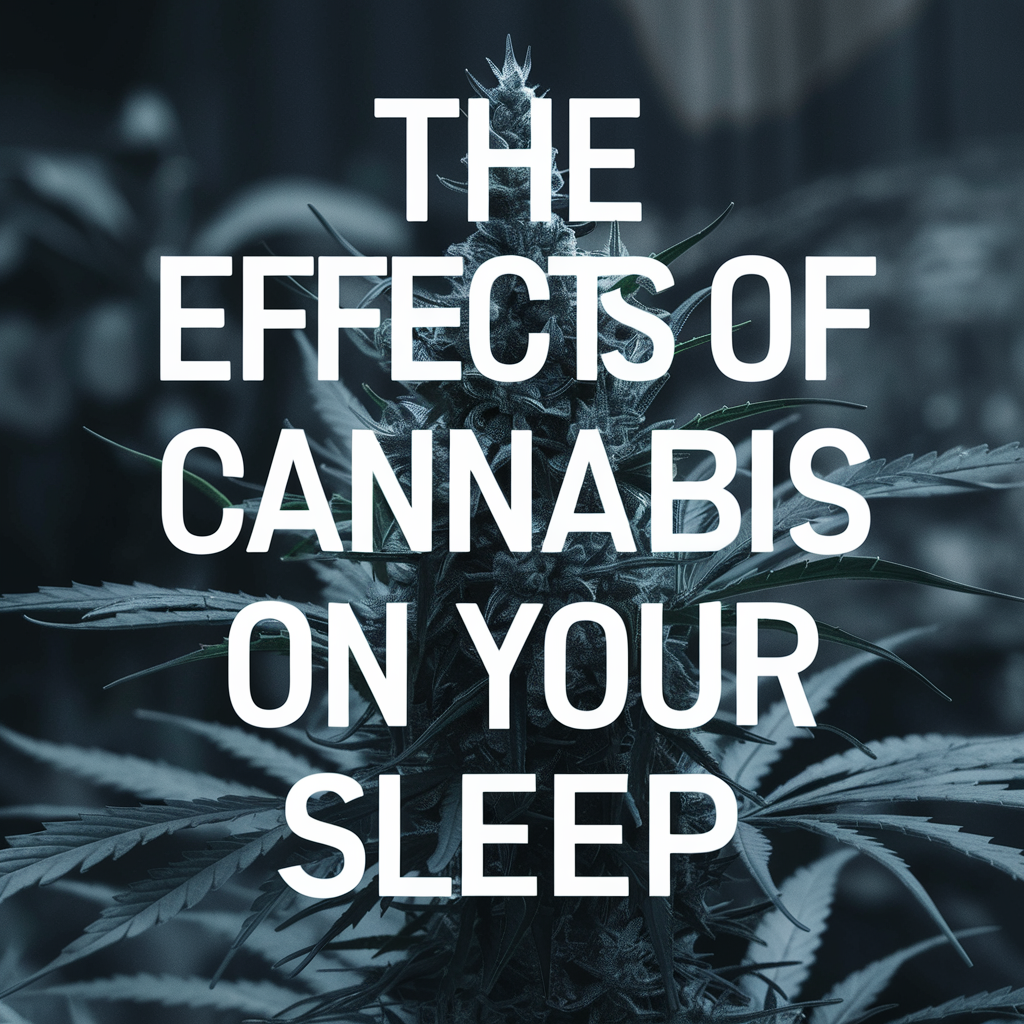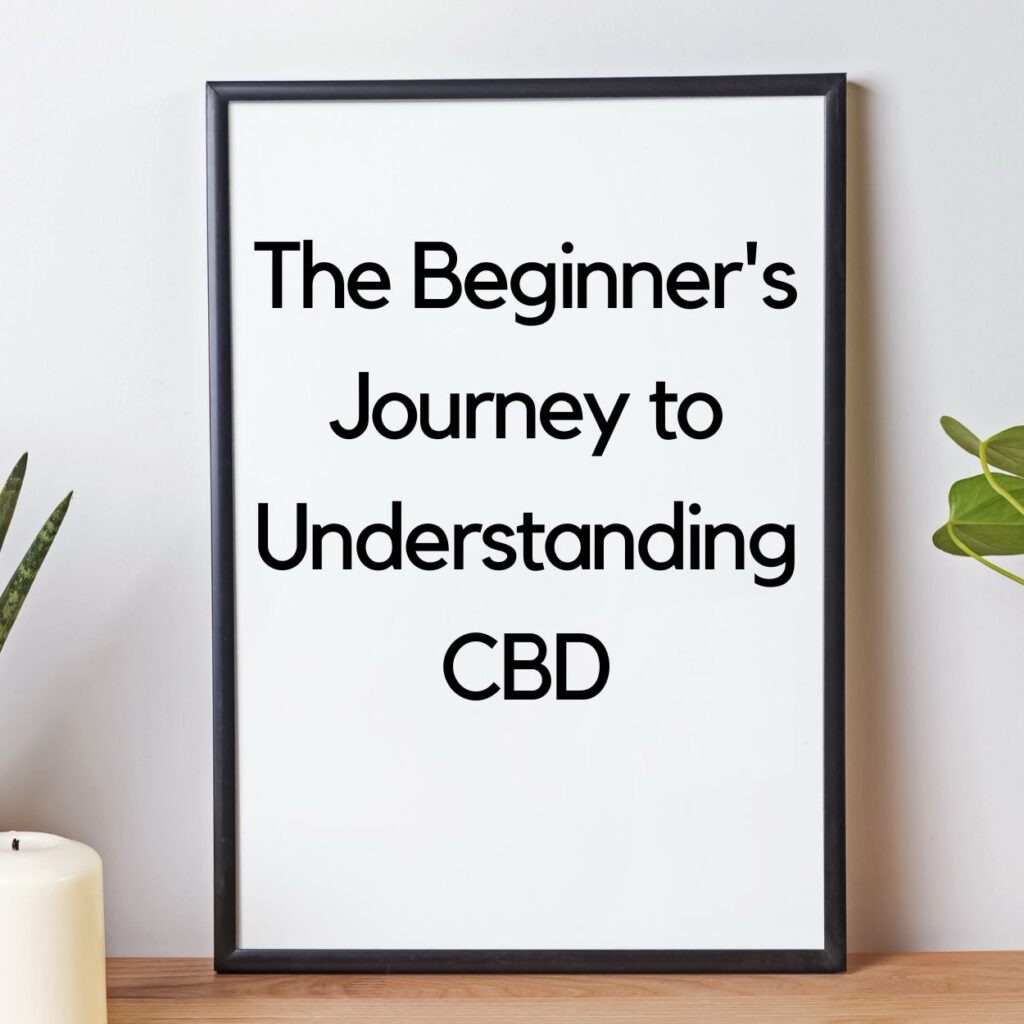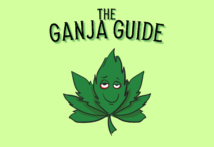
What Happens When You Sleep High?
As someone who’s used marijuana to relax after a long day, I’ve often wondered what really happens when you go to bed high. Does it actually help you sleep better? Or are there hidden effects that might be disrupting your rest? Like many people, I turned to cannabis for its calming properties, thinking it would help me drift off more easily. But as I dug deeper into the research and paid attention to my own experience, I realized there’s a lot more going on when you sleep high than I originally thought.
In this article, I’ll share what I’ve learned about what happens when you sleep high—from how marijuana impacts your sleep cycles to whether you can wake up feeling groggy. If you’ve ever wondered if marijuana really helps you sleep deeper or if it’s the right tool for better sleep, this guide will break it all down.

Does Marijuana Help You Sleep?
For me, marijuana has been a game-changer when it comes to managing insomnia. After trying different remedies, I found that using certain strains of cannabis before bed helped me relax and fall asleep more easily. But like many others, I was curious to know if marijuana really helps with sleep or if there’s more to the story.
How Marijuana Affects Sleep
Cannabis, particularly strains high in THC, is known to have sedative effects, which can make you feel drowsy and ready for bed. When I’ve struggled to wind down after a stressful day, taking a few hits of an indica strain often did the trick, easing me into a more relaxed state and helping me fall asleep faster.
The science behind this makes sense. THC interacts with the brain’s endocannabinoid system, which plays a role in regulating mood, sleep, and other essential functions. It’s why many people, including myself, find relief from insomniawith cannabis. But it’s not just THC—certain CBD-rich strains can also help, offering relaxation without the psychoactive high, making it another option for better sleep.
However, it’s important to note that not all marijuana strains are created equal when it comes to sleep. While indicastrains tend to promote relaxation, some sativa strains can actually have the opposite effect, leaving you feeling energized and awake. For anyone considering using marijuana as a sleep aid, it’s crucial to pick the right strain. If you’re looking for more information, I’d suggest checking out this guide on finding the best marijuana strains for pain relief, as pain management often ties into better sleep.
For those who prefer natural alternatives or want to supplement their cannabis use with other remedies, here’s a resource on Discovering Natural Remedies for Better Sleep. Sometimes, combining different methods can bring the best results.
Unfortunately, some laws in some places or even work places restrict people from using cannabis, check out the article linked to the image below on drug free sleep support.

Does Being High Make You Sleep Deeper?
One of the things I initially hoped for when using marijuana was that it would help me not just fall asleep faster but also sleep more deeply. After all, if I’m going to use it to fight insomnia, I want to wake up feeling truly rested. In my experience, it felt like I was sleeping deeper when high, but after looking into it more, I realized it’s a bit more complicated.
How Marijuana Affects Sleep Cycles
While marijuana can definitely help you fall asleep faster, it also impacts your sleep cycles, particularly REM sleep—the stage of sleep where most dreaming occurs. THC, the psychoactive compound in marijuana, tends to suppress REM sleep, meaning you might dream less or have fewer vivid dreams. Some people, including myself, find this helpful, especially if you deal with frequent nightmares or restlessness during REM.
However, less REM sleep doesn’t necessarily mean deeper sleep. Although I often felt like I was sleeping deeply, I realized that the reduction in REM could also mean that certain aspects of sleep quality were being affected. In my case, I noticed that while I was able to sleep for longer stretches, I didn’t always feel as refreshed as I expected when I woke up. This made me curious about the balance between falling asleep faster and ensuring that I’m getting the most restorative sleep possible.
Some research suggests that long-term marijuana use might even disrupt sleep cycles over time, leading to a dependence on cannabis for sleep and possibly affecting sleep quality in the long run. This is something I try to be mindful of, especially when using cannabis regularly. If you’re curious about how different cannabis strains might affect not just sleep but also relaxation and pain relief, check out this guide on Cannabis for Pain Relief.

Will You Sleep High and Wake Up High?
One of the first things I worried about when using marijuana for sleep was whether I’d wake up still feeling high. It’s not ideal to start the day groggy or foggy, especially if you have responsibilities in the morning. The short answer is: it depends on how much you consume, the strain, and your tolerance.
How Long Does the High Last?
In my experience, if I smoke or vape a small amount of THC-heavy marijuana before bed, I usually wake up feeling normal, maybe a little groggy, but not high. Most of the high tends to wear off during sleep, especially if you’re using a fast-acting method like smoking or vaping. Typically, the effects of smoking or vaping wear off in 2 to 4 hours, so by the time I’m waking up, it’s mostly out of my system.
However, if you consume a larger dose or use edibles, the story can change. Edibles take longer to process and can last much longer—sometimes up to 8 hours or more. I’ve had nights where I used edibles before bed, and while they did help me sleep, I woke up feeling sluggish and a bit “off,” like the high hadn’t fully worn off. This can be especially true if the edible dosage is higher than your body is used to processing.
Factors That Affect Waking Up High:
- Dosage: A higher dose will last longer in your system and can lead to feeling foggy or even still high in the morning.
- Method of Consumption: Smoking or vaping tends to wear off faster, while edibles take longer to metabolize and can result in waking up groggy or high.
- Tolerance: The more accustomed your body is to THC, the quicker you’ll recover from the effects, meaning you’re less likely to wake up feeling high if you have a higher tolerance.
If you’re worried about waking up groggy, it’s a good idea to start with a low dose or try consuming marijuana earlier in the evening, giving your body time to process the effects before bed. Finding the right balance between falling asleep easily and waking up clear-headed can take some experimentation. For those looking to try a balanced approach to relaxation and sleep, hybrid strains can offer a more controlled experience. You can learn more about hybrid strains here: Discover the Best Hybrid Strains.

Best Marijuana Strains for Sleep
When it comes to using marijuana for sleep, the strain you choose plays a big role in how effective it is. Not all strains are created equal—some will leave you feeling relaxed and ready for bed, while others might make you more energized and alert. Over time, I’ve learned that finding the right strain is key to getting a good night’s rest.
Indica Strains: The Go-To for Sleep
Indica strains are well-known for their relaxing, sedative effects. These strains are often my go-to when I need help winding down. Indicas tend to promote body relaxation, relieve stress, and create a calming effect, which makes it easier to drift off to sleep. Some popular indica strains for sleep include:
- Granddaddy Purple: Known for its deep relaxation effects.
- Northern Lights: Often used for insomnia relief and overall calming.
These strains are particularly helpful if you’re dealing with chronic pain or anxiety, which can often interfere with sleep. If you’re looking for more detailed recommendations, check out this guide on finding the best marijuana strains for pain relief.
Hybrid Strains: A Balanced Option
Sometimes, I don’t want the full sedative effect of an indica, but I still need something to calm me down. This is where hybrid strains come in handy. Hybrids are a blend of both indica and sativa strains, offering a balance between relaxation and mental clarity. They can help you unwind without making you feel too heavy or sluggish.
One of my favorite hybrids for nighttime use is Blue Dream, which gives a soothing, mellow high that helps me sleep without making me feel overly drowsy. If you’re new to hybrids or want more guidance, here’s a helpful article on the best hybrid strains.
Sativa Strains: Better Left for Daytime
While sativa strains are great for boosting energy and creativity, I’ve learned through trial and error that they’re not ideal for sleep. Sativas are more stimulating and can leave you feeling wired rather than ready for bed. If you’re hoping for restful sleep, it’s best to stick to indica or hybrid strains in the evening.
Choosing the right strain is a personal process, and it often takes a bit of experimentation to find what works best for you. Keep in mind that everyone reacts differently to THC and CBD, so what works for one person may not work as well for another.

Does Marijuana Impact Sleep Quality in the Long Term?
While marijuana has helped me fall asleep faster and manage my insomnia, I’ve started to wonder how long-term usemight affect my overall sleep quality. At first, it seemed like the perfect solution for sleepless nights, but I wanted to understand the possible downsides of relying on cannabis for sleep over an extended period.
Tolerance and Dependence
One of the biggest concerns with using marijuana regularly for sleep is that your body can develop a tolerance to THC. I’ve noticed that over time, I needed higher doses to achieve the same relaxing effects that I once got from smaller amounts. This isn’t unusual—just like with many substances, your body can adapt to cannabis, making it less effective at inducing sleep over time.
In addition to tolerance, there’s the possibility of becoming psychologically dependent on marijuana for sleep. If you start to feel like you can’t fall asleep without it, that’s a sign of dependence. Personally, I’ve had nights where I wondered if I was too reliant on cannabis to get to sleep, and it made me reconsider how often I was using it.
Impact on REM Sleep and Sleep Cycles
Another long-term effect to consider is how marijuana impacts your REM sleep. As mentioned earlier, THC tends to suppress REM sleep—the stage where most dreaming occurs. While this might help reduce nightmares or vivid dreams in the short term, consistently limiting REM sleep over long periods can affect the overall restorative quality of your sleep. In my case, I found that my sleep felt “deeper,” but I wasn’t waking up feeling as refreshed as I’d hoped.
There’s also research suggesting that long-term cannabis use could disrupt natural sleep cycles, potentially leading to sleep problems once you stop using marijuana. I’ve experienced nights where, after taking a break from cannabis, it was harder to fall asleep or stay asleep without it. This “rebound insomnia” is something many long-term users experience when they cut back.
Exploring Other Sleep Solutions
While marijuana can be a helpful tool for sleep, I’ve found it’s a good idea to mix it up and not rely on it every night. I’ve started exploring other natural remedies and techniques to help me sleep better without always turning to cannabis. If you’re curious about alternative methods, I recommend checking out this comprehensive guide on Overcoming Sleep Issues: Tips and Products. It covers other ways to improve sleep quality without relying solely on marijuana.

Exploring Alternatives: Marijuana vs. CBD for Sleep
As I began to look into alternatives for sleep, CBD became a natural next step. Unlike THC, which is the psychoactive compound in marijuana that makes you feel high, CBD offers many of the relaxing benefits without altering your mental state. After trying both, I found that CBD can be a great option for sleep when you want the calming effects without feeling groggy or “out of it.”
How CBD Helps with Sleep
CBD interacts with the body’s endocannabinoid system, much like THC, but without the high. In my experience, CBD helps ease anxiety and tension, which are usually the biggest hurdles for me when it comes to falling asleep. I’ve used CBD oils and gummies to unwind before bed, and while the effects aren’t as immediate or intense as THC, they’re more subtle and don’t come with the risk of feeling high when you wake up.
For those looking for an option that won’t interfere with their REM sleep or disrupt their sleep cycles, CBD might be a better fit than THC. I noticed that when I use CBD, I wake up feeling more refreshed, as it doesn’t suppress my REM sleep the way THC sometimes does. If you’re curious about the differences between CBD and THC, and how they work for sleep, check out this guide on The Beginner’s Journey to Understanding CBD.
Benefits of Combining CBD and THC for Sleep
One thing I’ve experimented with is using both CBD and THC together. By combining the two, you can get the relaxing benefits of both compounds, but with less of the psychoactive high. Many people find that a combination of THC and CBD works well for sleep, especially if the goal is to reduce anxiety and get a more restful night.
For those looking to experiment with different blends, hybrid strains that have a balance of CBD and THC can offer the best of both worlds. Hybrids tend to provide a calming body high without making you feel too heavy or mentally foggy. If you want to explore this option, here’s a helpful resource on The Best Hybrid Strains for a more balanced experience.

Understanding What Happens When You Sleep High
Using marijuana for sleep has been a personal solution that’s helped me manage insomnia and find relief when nothing else worked. But as I’ve explored what happens when you sleep high, I’ve learned that it’s not as straightforward as simply falling asleep faster. While THC can help you relax and drift off, it can also impact your sleep cycles, especially REM sleep, which affects how rested you feel in the morning.
The key takeaway for me is that while marijuana can be a useful tool for sleep, it’s important to be mindful of dosage, strain, and how often you use it. Indica strains are ideal for promoting relaxation, but using marijuana consistently may lead to tolerance and potential disruptions in long-term sleep quality. If you’re worried about waking up groggy or “still high,” consider starting with lower doses or experimenting with CBD, which offers many of the same calming benefits without the psychoactive effects.
Ultimately, it’s all about finding balance. If you’re looking for a more natural approach to sleep, CBD is a great option, especially if you want to avoid the side effects of THC. And if you’re like me, combining THC and CBD in hybrid strains can give you the best of both worlds, providing relaxation and rest without too much mental fog.

If marijuana works for you, it can be a powerful sleep aid, but it’s worth exploring other options too. There are plenty of natural sleep remedies that can complement or replace cannabis in your nightly routine. For more ideas on how to improve sleep, whether you’re using marijuana or not, check out The Ultimate Guide to Overcoming Sleep Issues: Tips and Products. It’s a great resource that covers different strategies to improve your sleep naturally.
At the end of the day, whether you choose marijuana, CBD, or other natural remedies, the goal is to get the restful, restorative sleep you need to feel your best. Here’s to better nights of sleep—high or not!
As an Amazon Associate we earn from qualifying purchases through some links in our articles.




